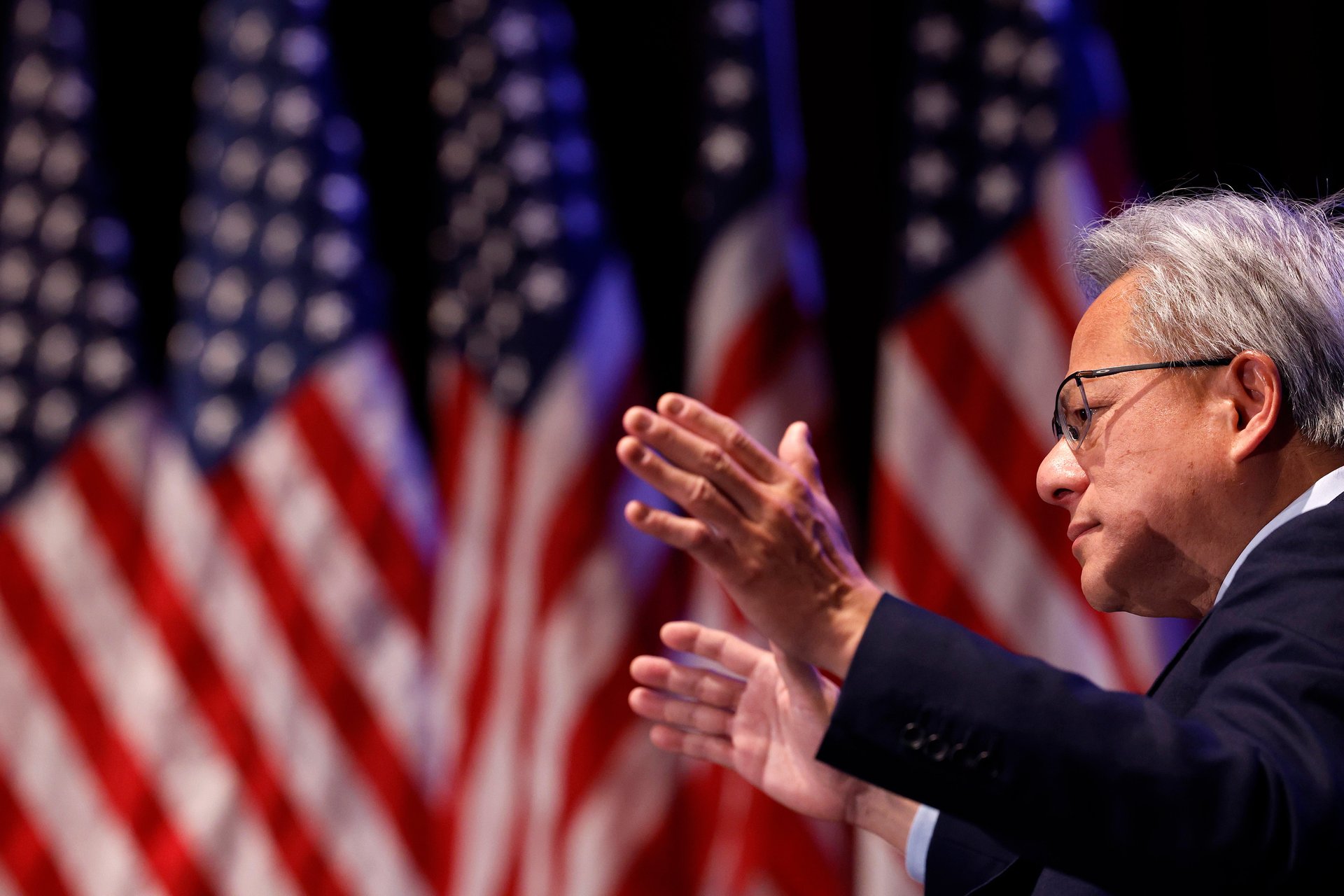Nvidia will release cheaper Blackwell AI chips in China to avoid U.S. restrictions, report says
With its most advanced chips barred from China, Nvidia is reportedly cooking up a Blackwell variant to help the company stay relevant in the Chinese market

Nvidia’s (NVDA) delicate dance in China continues. Amid U.S. export restrictions on its advanced AI chips, the chip giant valued at $3.3 trillion is reworking its product line — again — to maintain its hold on one of its most important markets without crossing Washington.
Suggested Reading
Reuters (TRI), citing unnamed sources familiar with the matter, reported that the company is preparing to release a stripped-down version of its popular Blackwell AI chips that have been specifically designed to comply with U.S. export rules. The news comes days before Nvidia prepares to release its first-quarter 2025 earnings.
Related Content
The Blackwell-based, China-only chip will reportedly cost from $6,000 to $8,000 and use conventional GDDR7 memory, a step down from the high-bandwidth tech in Nvidia’s flagship models. The previous H20 chips offered in the country sold for between $10,000 and $12,000. This coming chip also would ditch packaging in technology from Taiwan Semiconductor Manufacturing Co. (TSM)
An Nvidia spokesperson told Reuters that the company is looking at its “limited” options: “Until we settle on a new product design and receive approval from the U.S. government, we are effectively foreclosed from China’s $50 billion data center market.”
This isn’t Nvidia’s first regulatory rodeo.
After the U.S. blocked chip exports to China in 2022, the company responded with watered-down versions. When those got swept up in restrictions in late 2023, Nvidia developed chips with further reduced performance to comply with regulations. And that regulatory merry-go-round has continued. In April, Nvidia took a $5.5 billion charge after the U.S. government moved to block exports of the company’s H20 AI chips to China.
Now, Nvidia is hoping that this China-specific chip variant will thread the needle.
CEO Jensen Huang has been increasingly vocal about his frustrations with U.S. policy. At an event earlier this month, he called the export controls “a failure,” saying they’ve only accelerated China’s push to develop domestic AI hardware — sidelining U.S. players in the process.
Tech has become the next battleground in the trade war between the U.S. and China. As a result of Nvidia’s export restrictions, Chinese telecommunications giant Huawei is gaining ground with its AI chips, which are quickly becoming the preferred alternative for Chinese tech firms. Nvidia’s market share in China has reportedly fallen from 90% to around 50% since 2022.
But China remains a huge market for Nvidia, accounting for 13% of its sales in the past financial year. And this new chip is expected to help the company keep pace overseas despite its market share loss — because as good as Huawei is becoming, Nvidia is still considered better.
